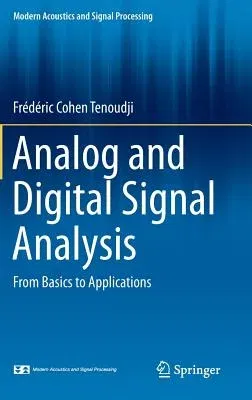This book provides comprehensive, graduate-level treatment of analog and
digital signal analysis suitable for course use and self-guided
learning. This expert text guides the reader from the basics of signal
theory through a range of application tools for use in acoustic
analysis, geophysics, and data compression. Each concept is introduced
and explained step by step, and the necessary mathematical formulae are
integrated in an accessible and intuitive way. The first part of the
book explores how analog systems and signals form the basics of signal
analysis. This section covers Fourier series and integral transforms of
analog signals, Laplace and Hilbert transforms, the main analog filter
classes, and signal modulations. Part II covers digital signals,
demonstrating their key advantages. It presents z and Fourier
transforms, digital filtering, inverse filters, deconvolution, and
parametric modeling for deterministic signals. Wavelet decomposition and
reconstruction of non-stationary signals are also discussed. The third
part of the book is devoted to random signals, including spectral
estimation, parametric modeling, and Tikhonov regularization. It covers
statistics of one and two random variables and the principles and
methods of spectral analysis. Estimation of signal properties is
discussed in the context of ergodicity conditions and parameter
estimations, including the use of Wiener and Kalman filters. Two
appendices cover the basics of integration in the complex plane and
linear algebra. A third appendix presents a basic Matlab toolkit for
computer signal analysis. This expert text provides both a solid
theoretical understanding and tools for real-world applications.

